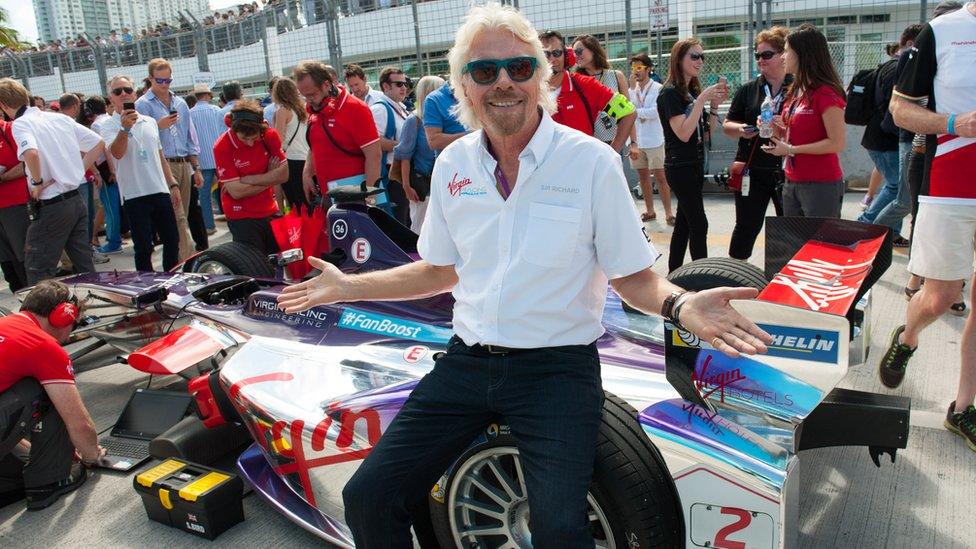Electric car buyers claim they were misled by Nissan
- Published
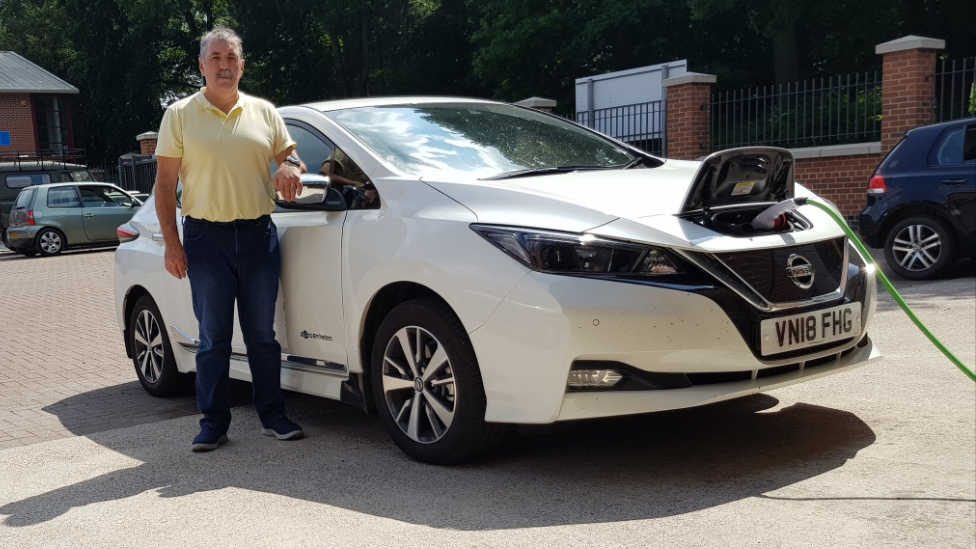
John Weatherley says Nissan exaggerated the facts about the Leaf
Owners of Nissan's new electric Leaf say they were given misleading information about the car before buying it.
They say charging the Leaf can take three times longer than claimed on Nissan's website.
Others are unhappy that the range on a single charge is not as good as the 235 miles (378km) they were promised.
Nissan admitted that charging times can vary, but denied there was a problem or that any customers were misled.
The Advertising Standards Authority is now considering whether to launch an investigation into the issue.
Charging time
As many as 2,600 new Leafs have been sold in the UK, and it was named Electric Car of the Year for 2018 by What Car? magazine.
But drivers attempting longer journeys in the Leaf have found themselves spending up to two and a half hours at motorway service stations to recharge.
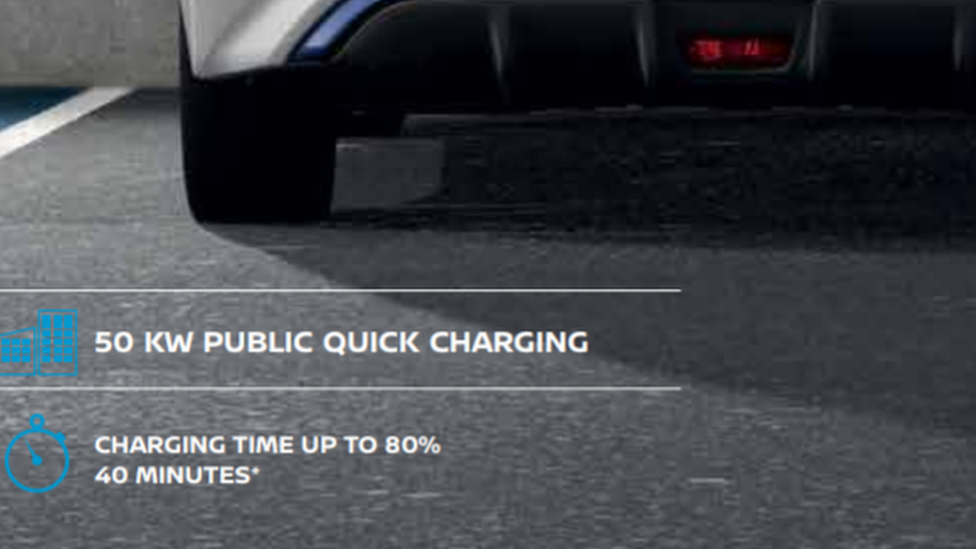
Last year Nissan said charging should take 40 minutes, depending on conditions
Last year, Nissan told prospective buyers that using so-called rapid chargers should only take 40 minutes "in moderate driving conditions" for an 80% charge. They subsequently changed that to between 40 and 60 minutes.
There appears to be no problem with the first two charges on any given day - one at home, and then the first rapid charge en route.
It is only when drivers come to charge for the third time - or the second rapid charge - that some have said they face long waits. Potentially, that could affect any journey of more than 250 miles.
John Weatherley, a company director from the Forest of Dean, loves his Nissan Leaf.
But when he made a 300 mile journey to the Lake District, he found himself waiting for a total of two-and-a-half hours when he stopped to charge for a second time.
"If Nissan at the start had said what the car is capable of, without exaggerating the fact on their website, I'd have been fine with it," he told the BBC.
"They said they could charge in 40 to 60 minutes, so I believed them. But it's not true. The advertising is totally misleading."
When Mr Weatherley wrote to Nissan to complain, he was told that rapid charging was only intended for use once in a journey - something many buyers may be unaware of.
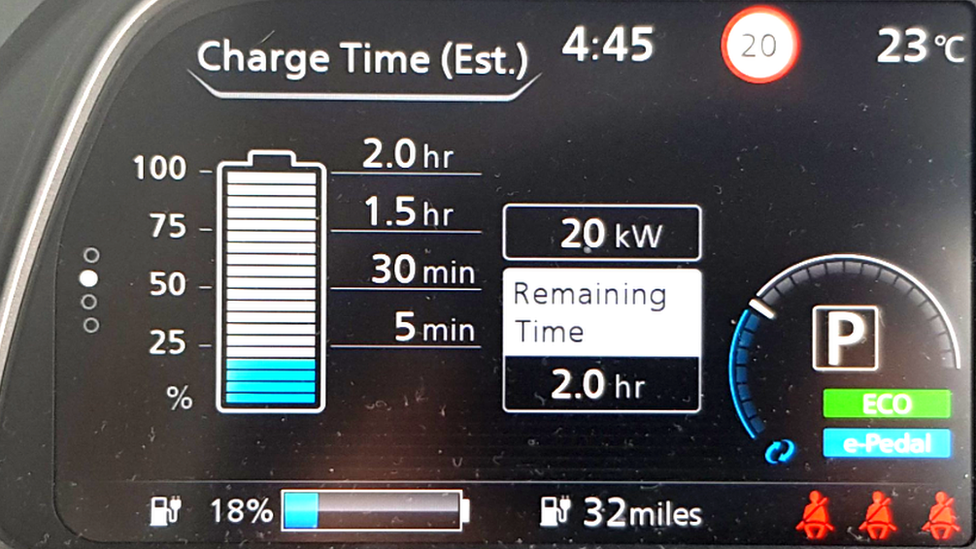
Mr Weatherley's dashboard, indicating two hours still to wait
Nissan also told the BBC that charging can take longer than advertised, depending on conditions.
"External ambient temperature, the type of driving you've been doing beforehand, and the heat you put into the battery if you've been doing successive charges can impact the timing," said Gareth Dunsmore, director of electric vehicles for Nissan Europe.
He said the battery automatically slows a charge, to preserve its longevity, and to act as a safety mechanism when it gets too hot.
"We make this clear in the owner's manual," said Mr Dunsmore.
In some instances it can also be the charger itself that is to blame, he said.
'Misled twice'
Tony Pitcairn, from Ilkley in West Yorkshire, had problems on a 290 mile drive to Somerset.
He and his wife spent 90 minutes at a motorway services in Gloucestershire.

Tony Pitcairn says the estimated range was unrealistic
But Mr Pitcairn was also disappointed by the range of the new Leaf, which he bought specifically for long journeys.
His marketing brochure claimed the car could do 235 miles on a single charge.
But having bought the car, he found the range was actually 155 miles.
"That was a disappointment to start with," he said.
"So we have, in my mind, been misled twice, because the claimed range on a full charge is not 235 miles. Secondly, nowhere does it say that you will only be able to rapid charge in 40 minutes only once."
When journalists from What Car? tested the new Leaf, they found a "real world" range of just 108 miles.
Orders cancelled
Nissan said the original claim of 235 miles was correct under an official means of measurement known as the New European Driving Cycle (NEDC).
However, as carmakers have moved to a different measure - known as the Worldwide harmonised Light vehicle Test Procedure (WLTP) - the range is now officially 168 miles.
Mr Dunsmore advised any upset customers to get in contact: "Come and speak to us if there's anything you're not happy with."
Meanwhile, a number of customers have cancelled their orders.
Allow X content?
This article contains content provided by X. We ask for your permission before anything is loaded, as they may be using cookies and other technologies. You may want to read X’s cookie policy, external and privacy policy, external before accepting. To view this content choose ‘accept and continue’.
Matt Beard, from Aberdeenshire, did so after taking a test drive. Eventually he bought the older model Leaf instead, which has a less powerful battery, but fewer problems when charging. In a tweet, he said he was shocked at how bad the problem was.
Others are unhappy with the response from Nissan.
Jonathan Porterfield, of eco-cars.net, who regularly drives electric cars from Leicester to Orkney, was the first to report the issue.
"I don't want this episode to knock Nissan, but at the same time they need to sit up and take notice," he said.
"Just telling people you've got to wait longer at a rapid charger - it's not good enough."
- Published28 June 2018
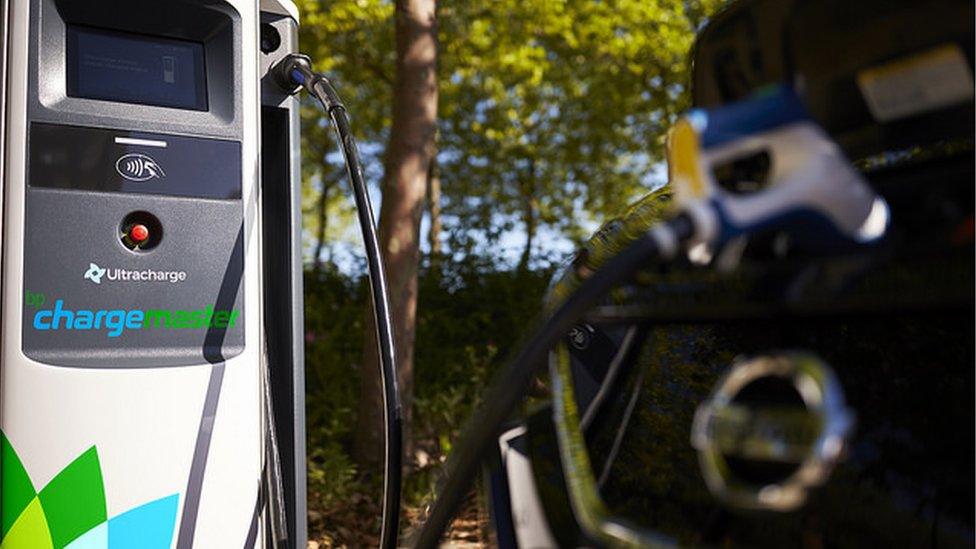
- Published7 June 2018
